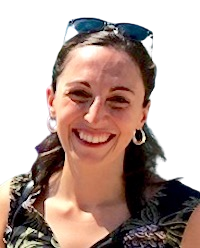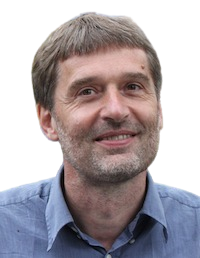Journée
FRUMAM, St Charles, Marseille
Date(s) : 14/09/2022 iCal
9 h 30 min – 15 h 15 min
Journée Systèmes Dynamiques AVIGNON-MARSEILLE
Cette année, la journée portera sur la dynamique holomorphe.
Conférenciers confirmés : Jasmin Raissy (Université de Bordeaux), Charles Favre (Ecole Polytechnique), Dierk Schleicher (Aix-Marseille Université).
PROGRAMME
| – 09h30 : accueil des participants | |
| – 10h15 : exposé de Jasmin RAISSY | Domaines spiralants en dimension 2 |
 |
Dans cet exposé, je présenterai un travail en cours avec Xavier Buff. Nous étudions la dynamique des endomorphismes holomorphes de $\mathbb{C}^2$ qui sont tangents à l’origine à un point fixe.
Notre but est de montrer l’existence d’endomorphismes tangents à l’identité pour lesquels le bassin d’attraction du point fixe a un nombre infini de composantes connexes distinctes, où les orbites convergent vers le point fixe sans être tangentes à aucune direction.
|
|
– 11h15 : pause café
|
|
| – 11h45 : exposé de Charles FAVRE | Symétrie des ensembles de Julia |
 |
Dans un article en commun avec Romain Dujardin et Thomas Gauthier, nous nous intéressons aux symétries holomorphes locales des ensembles de Julia d’une application rationnelle. Notre travail s’appuie sur un résultat crucial de Levin des années 80 et sur des techniques de courants positifs. |
| – 12h45 : déjeuner | |
| – 14h15 : exposé de Dierk SCHLEICHER | Finding roots of complex polynomials: from numerical analysis to dynamical systems and computer algebra |
 |
To find all roots of a given complex polynomial in one variable is one of the classical problems in all areas of mathematics. It is well known that this can be done only by methods of approximation. We discuss three classical methods: the Newton, Weierstrass (=Durand-Kerner), and Ehrlich-Aberth methods; these are complex analytic dynamical systems that are supposed to converge to one root, resp. all roots of the polynomial. These methods converge fast locally, but the global dynamical properties are a big challenge. We will describe these three methods and their relations and differences. We have worked on them for a long time. In this talk we will focus on recent progress on all these methods from the dynamical systems point of view, partly with help of computer algebra —where we reached the current computational limits. We also describing current challenges. Several of the results we describe have been obtained in recent years with my ERC team here in Marseille, in particular with Bernhard Reinke. The Newton and Weierstrass methods are not globally convergent: for open sets of polynomials there are open sets of initial points that fail to converge to roots. Moreover, for Weierstrass and Ehrlich-Aberth, there are orbits that are always defined and converge, but not to roots. For Newton, there is meanwhile a rich theory about its global dynamics, including reasonable complexity bounds, but there are many open questions for all these methods. |
Comité scientifique : TBA
Comité d’organisation : Peter Haissinsky (AMU) et Andrea Venturelli (AU)
peter.haissinsky@univ-amu.fr / andrea.venturelli@univ-avignon.fr
Financement : FRUMAM
